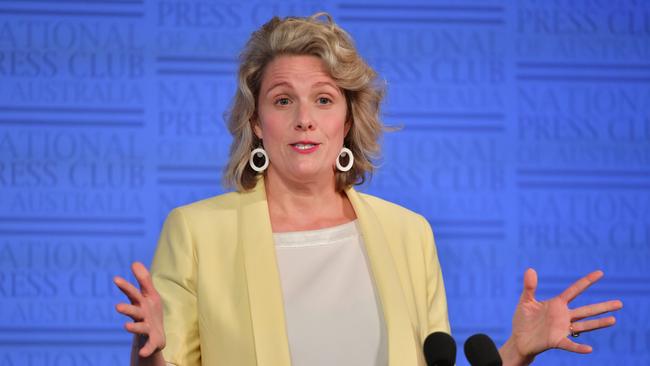Aged care ‘an economic opportunity, not a money pit’, says Labor
More aged care funding can help address key economic issues including underemployment and women’s workforce participation, Labor’s Clare O’Neil says.

Far from being a multi-billion-dollar money pit for the federal government, delivering better aged care could be the next big economic opportunity for the nation, Labor’s Clare O’Neil argues.
And given population ageing will increase demand for jobs in care services, the opposition spokeswoman for senior Australians and aged care services says the government should “kick with the wind” and back in higher pay.
This investment would help address underemployment, support greater workforce participation for women, and quickly flow back through the economy, Ms O’Neil adds.
In a speech entitled The Economic Case for Aged Care Reform, to be delivered to the McKell Institute on Wednesday, Ms O’Neil doesn’t offer dollar projections on the potential cost to the taxpayer of delivering higher-quality aged care, but argues that policymakers should consider care services as vital infrastructure no less important to Australians than transport or power stations.
“It is uneconomic, irresponsible and just plain wrong to see aged care as a money pit,” she says. “Aged care reform could help us tackle some of the biggest economic challenges we face.
“(It) will not only create an aged-care system which provides services that the millions of older Australians who rely on this system deserve … (it will also) create a better economic future for millions of Australians.”
Aged-care reform is set to be a key plank of the May 11 federal budget. After the aged care royal commission’s final report in February outlined 148 recommendations to improve the quality of care, Scott Morrison said his government would offer its comprehensive response in the budget.
One option proposed by the commission is an additional income tax levy specifically for aged care. But Josh Frydenberg has indicated he is not keen to raise taxes to pay for aged care.
Canberra provides about $20bn of the $27bn annual cost of government aged care, with individuals paying the rest.
Ms O’Neil argues the federal government is uniquely placed to help the economy as the primary funder of aged care. She says more government funding can support some of the nation’s big economic challenges, including due remuneration for hundreds of thousands of important care jobs, reducing underemployment, bolstering low wages growth and improving the participation rates of women in the workforce.
“Aged care jobs, and care jobs, should be good jobs. They should be properly paid. Their conditions should be decent and desirable,” she says. “These jobs should give the workers in these sectors independence and economic power. And these workers should be able to consume and spend money in their communities and contribute to their own households and own neighbourhoods.”
The healthcare and social assistance sector is the largest employment sector in the nation, and growing fast. By 2050 it is estimated a million Australians will be employed in aged care alone.
But the entry level pay for an aged-care worker is $21.09 an hour, lower than for a supermarket shelf stacker, Ms O’Neil says. Qualified workers are being paid $15 an hour less than an equivalent carer in the disability sector.




To join the conversation, please log in. Don't have an account? Register
Join the conversation, you are commenting as Logout